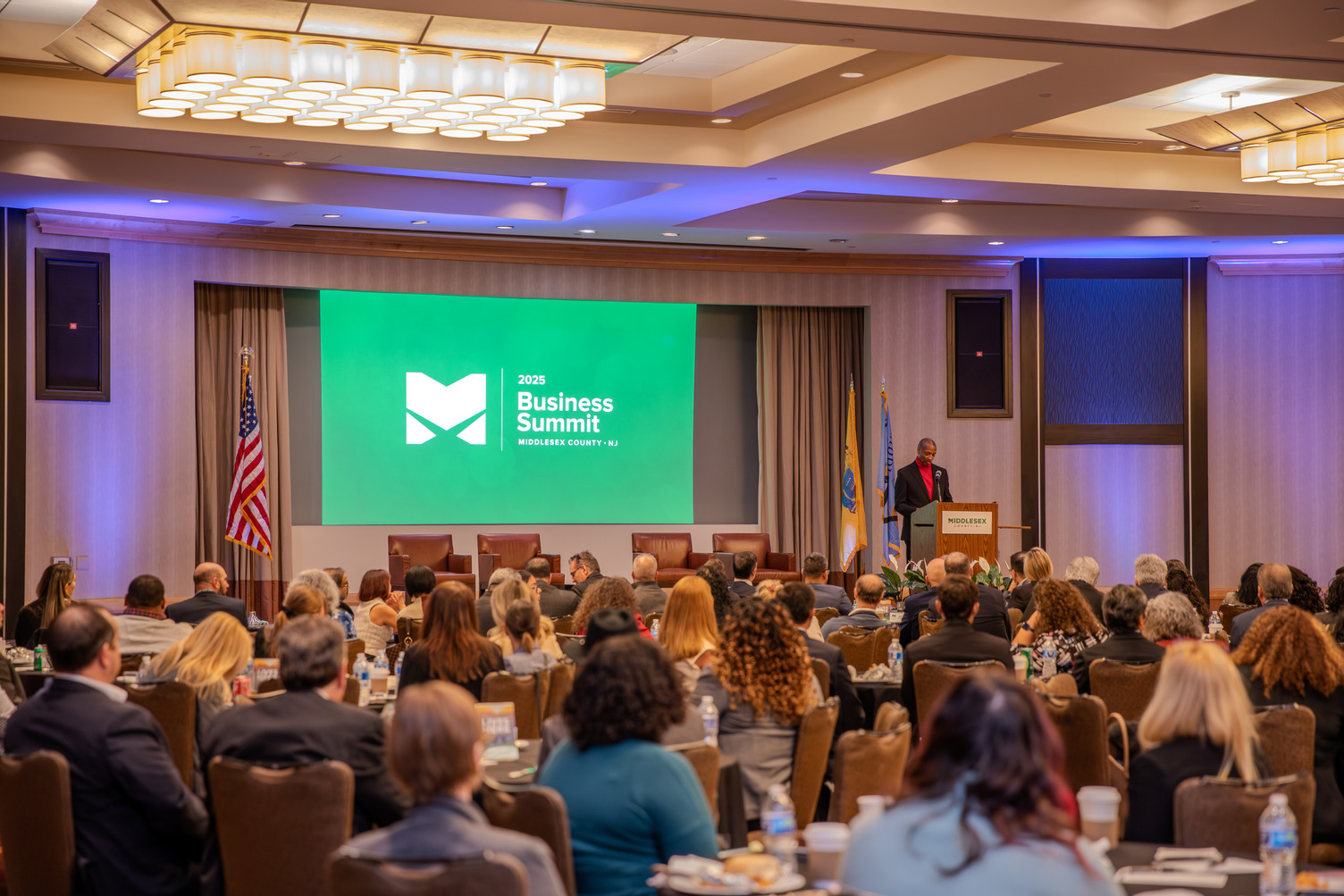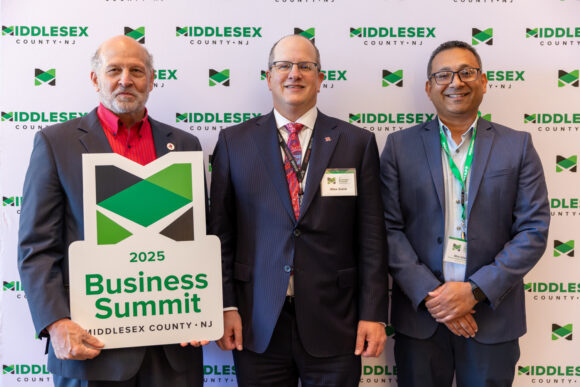Main Content
Originally Published on: October 27, 2025 by Office of Public Outreach and Communication

Rutgers President William F. Tate IV addresses the Middlesex Business Summit 2025. President Tate stressed the importance of University-Business collaboration to make New Jersey a to biomedical hub.
The Middlesex Business Summit 2025 attracted hundreds of New Jersey’s visionary business leaders, entrepreneurs, advisors and government officials on October 9, 2025, at the Heldrich Hotel and Conference Center in New Brunswick. Themed “Thriving Through Change: Business, Innovation, and the Future of Work,” the business conference featured presentations on the groundbreaking efforts underway to develop products, services and jobs that support communities across the region.
The summit’s keynote address was delivered by William F. Tate, IV, President of Rutgers University, who highlighted the critical role education plays in building and maintaining strong communities — and in building and maintaining a top biomedical hub.

James Oehmke, Director of Economic Development, SEBS/NJAES; Michael Zwick, Senior Vice President for Research, Rutgers University; and Sho Islam, Director of Business Engagement, Middlesex County.
Reflecting on his early experiences as a mathematics teacher in public schools in Dallas, TX, Tate shared the concept of the “cycle of opportunity,” which describes the vital need for a positive, supportive relationship between the community and education. He then connected this concept with Rutgers’ biomedical ecosystem, explaining that the university’s job is to “benchmark the very best practices so they can be applied in an open industry,” to help make [New Jersey and the surrounding] region the top biomedical ecosystem in the country.
Firsthand insights from a distinguished lineup of presenters blazing trails in their respective fields were presented in four engaging panel discussions during the day-long conference.
James Oehmke, chair of the Rutgers Department of Agricultural, Food, and Resource Economics (DAFRE) and faculty director of the Office of Economic Development at SEBS, attended the conference. Reflecting on the key mission of advancing industry and education, Oehmke noted that “the conference brought together many of the key university, private-sector, and government players and provided both plenty of food for thought and amazing networking opportunities.”
A DAFRE alumnus, Sho Islam directs the Office of Business Engagement for Middlesex County. He brings 20 years of experience to his role in entrepreneurship and business development, which began in 2005 at the Rutgers Food Innovation Center—a unique food business incubator and accelerator that supports established early-stage entrepreneurs and existing food companies from concept to commercialization.

L-R: Summit panelists Ariane Vasilatis, co-founder and CEO of Zena Therapeutics; John Huang, founder and CEO of TheWell Bioscience, Inc.; John McGuckin, CEO of CLIO Snacks; and Sho Islam, director of the Office of Business Engagement, Middlesex County.
Islam served as the moderator of the panel, “Entrepreneurial Success, Navigating in Today’s Environment,” which featured three presenters, including Ariane Vasilatis, co-founder & CEO of Zena Therapeutics—a Rutgers startup that strives to create narcotic medications that will minimize or even eliminate overdoses from prescription drugs.
The three panelists, all founders and CEOs drawn from the consumer goods, biosciences and therapeutics industries, shared their motivations and strategies as well as key lessons learned on their respective journeys to becoming successful entrepreneurs.
“You need to have the passion, because it gets really hairy. Budgets get tight and you must have cash on-hand. But you have to be steadfast and have the passion to keep going, because you will face naysayers and challenges. And remember: Imposter syndrome is real. You’ll question yourself and if you have the credentials… but believe in yourself,” said Vasilatis, who graduated from Rutgers in 2021.
The panelists also emphasized the importance of understanding customer needs, maintaining agility, and sharing a common vision, as well as the importance of location for their businesses.